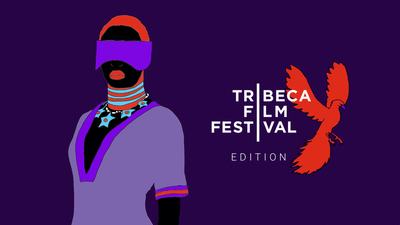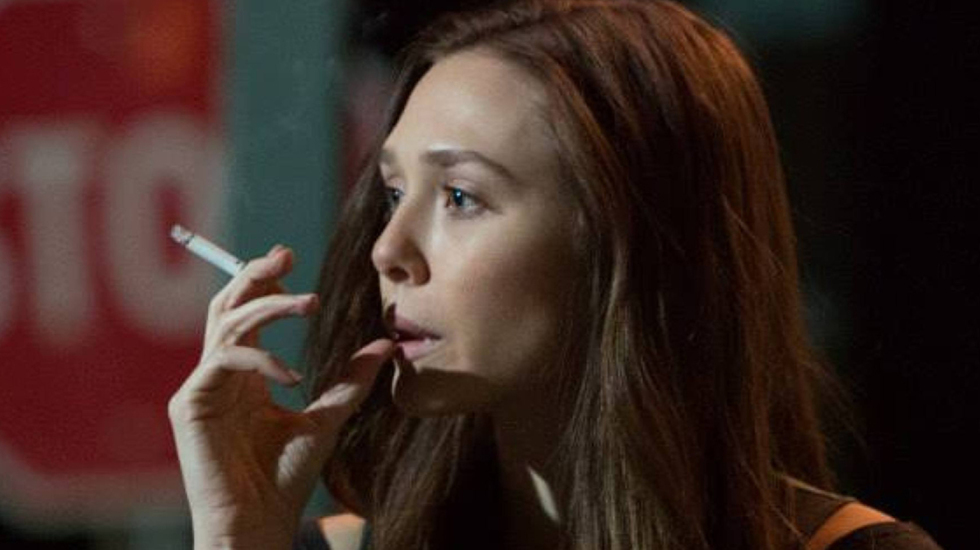
BY KAREN KEMMERLE |
Elizabeth Olsen on ‘Oldboy’ and Collaborating with Spike Lee
No longer seen solely as an indie darling, Elizabeth Olsen talked with us about moving into the mainstream with Spike Lee’s 'Oldboy.'

Spike Lee has never been one to play it safe, so it is no surprise that the actors he chooses to work with are also willing to take chances. With its notorious plot twist, Oldboy would be an intimidating project for any young actress, but Elizabeth Olsen did not hesitate to sign up to play Marie Sebastian. We got five brief, glorious minutes to chat with Olsen about her character, storytelling and her recent stage work that put her in the right mind frame for Oldboy.
Tribeca: Remakes of successful films with huge fan bases like Oldboy can be tricky. Were you at all hesitant before taking the role of Marie? Can this film be considered a true “remake”?
Elizabeth Olsen: I was a little nervous because I loved the original movie. However, I think I have this new idea about it all. While I was doing Romeo and Juliet off-Broadway, a movie version of the play and a Broadway production were going on at the same time. Any time you have the construct of a good story, there is always going to be more than one interpretation. That’s been a common occurrence since the days of Greek tragedies. In that context, a re-imagining of Oldboy is not superfluous or out of the question.
Also, unless you like international or cult cinema or are a fanboy, you probably missed Park Chan Wook’s original Oldboy, which was adapted from the Japanese manga into the Korean film. So the majority of the mainstream movie-going public in America is open to Spike’s re-imagining. It doesn’t matter who makes the film—this is a cool story that deserves to be seen by more people. It’s one of those things that you’re like, “Gasp! Whoa! No!” You know? And it’s fun to have those moments in a film.
In the edit, you can lose things like backstories because exposition isn’t action. In a movie like this, you need everything to move forward at a certain speed.
Tribeca: Spike Lee is known for being first and foremost an actor’s director. Did you find that to be true? Can you talk about the collaborative process? Was there any type of rehearsal period?
EO: Absolutely. I want to work with that man for the rest of my life. He’s just so fun. Plus, he’s also a crew’s director. The crew was so happy. Everyone was so well taken care of and appreciated Spike’s thoughtfulness. He was really conscious of stopping work early so everyone could share a meal with his or her family. There were no late hours.
Even before our two weeks of rehearsal prior to shooting, we would connect through conference calls. I would get on the phone with Spike, our producer and the writer, Mark Protesevich during the rewrite process. I was able to share my opinion, and they truly listened to me. In the two weeks prior to shooting, rewrites continued, and all the actors started to rehearse together with Spike and the writers on different scenes. He’s amazingly collaborative. I had so much fun making this movie.

Tribeca: The character of Marie in Spike Lee’s Oldboy is vastly different from her counterpart in the original film. How did you prepare for the role?
EO: Marie was Mark’s creation initially, but we refined the role together. He had this idea that wasn’t fully on the page, and we had to figure out psychologically why she’d be in the place she is and what she’ll need from Joe Doucett. We needed to progress in ways that would make sense to her character. In the edit, you can lose things like backstories because exposition isn’t action.
In a movie like this, you need everything to move forward at a certain speed. If you give too much information about characters involved in a twisted plot you may be dealing the audience so many cards that you won’t be able to keep them guessing. However, we fully fleshed Marie out so we could justify everything in the plot and make it believable that she has gotten herself into this situation.
Any time you have the construct of a good story, there is always going to be more than one interpretation.
Tribeca: As you mentioned before, you just finished playing Juliet in Romeo and Juliet at the Classic Stage Company. Can you talk about the challenges you face in preparing for a role on stage as opposed to tv/film?
EO: The most challenging part is thinking, “I nailed it!” after a certain performance. Then you realize it doesn’t matter because you have to do the performance a thousand times after. It’s easier in film because you only have to focus on a scene or two every day. With some scenes, you may only be needed for five minutes. You can make sure that you’re present and detail-oriented for every single minute. In a play, you have to ask yourself to play make-believe so specifically for a long period of time. This is a challenge, especially with such difficult texts—then add in your exits and entrances. You essentially have to live on the stage.
Plus, in the second act, I was not off the stage until I took the potion. That to me was really thrilling. I can’t wait to do a play where it’s just a two-hander. I want to be able to stay in that place for a full 90 minutes, you know? I think that would be easier in a way than getting in and out of it constantly.
Oldboy opens this Friday, November 29, across the country.

